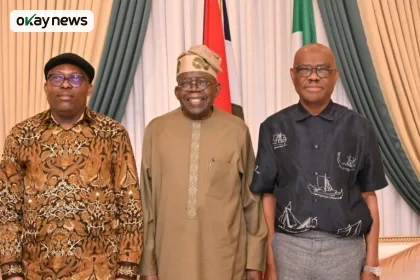Nigeria’s two major political parties — the Peoples Democratic Party (PDP) and the All Progressives Congress (APC) — have strongly condemned a recent judgment from a Federal Court in Canada that classified them as terrorist organisations.
The controversial ruling, issued on June 17, 2025, by Justice Phuong Ngo, upheld a prior Immigration Appeal Division (IAD) decision rejecting asylum for Nigerian national Douglas Egharevba. The basis was his long-term membership in the PDP and later the APC, which the court said were implicated in political violence and subversion of democracy.
According to court documents, Egharevba was a PDP member between 1999 and 2007 before switching to the APC until 2017, when he moved to Canada. Canadian officials alleged the parties engaged in ballot stuffing, voter intimidation, and politically motivated killings during events such as the 2003 state and 2004 local government elections.
The IAD concluded that the leadership of both parties benefited from electoral violence and failed to take preventive measures. Justice Ngo stated that, under paragraph 34(1)(f) of Canada’s Immigration and Refugee Protection Act, “mere membership of an organisation linked to terrorism or democratic subversion” could render an individual inadmissible, even without evidence of personal participation in violence.
The PDP dismissed the ruling as “misinformed, biased, and lacking evidence.” Deputy National Youth Leader Timothy Osadolor said: “Nigeria and Canada are both democracies… there’s nothing on text to show that even the malfunctioning APC is a terrorist organisation or the PDP, which is a credible institution.” He added that at best, allegations could be levelled at “some individuals in the government, particularly the APC government,” but not entire political entities.
Former NNPC spokesperson Olufemi Soneye warned that if such classifications go unchallenged, other Western democracies might adopt similar stances, leading to denied visas and rejected asylum claims. He cautioned that branding major political parties as terrorist groups could erode legitimacy, silence opposition, and damage civil liberties.
The APC was equally scathing. Its National Secretary, Senator Ajibola Bashiru, called the presiding judge “an ignoramus” and insisted that the party is “a credible democratic political organization” that “does not seek legitimacy from a foreign bench.” Bashiru stressed that Canadian courts have “no jurisdiction to determine the status of a Nigerian recognised political party.”
Both parties have urged Canadian authorities to reassess the decision and focus on individual accountability rather than broad political labelling that could strain bilateral relations and distort Nigeria’s democratic image.
okay.ng reports that diplomatic observers are closely monitoring the situation, noting that this unprecedented judgment could set a dangerous precedent in international politics.







